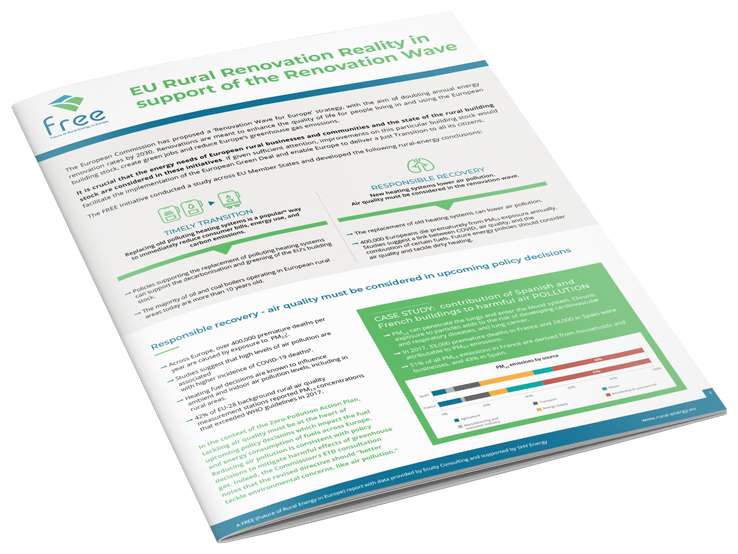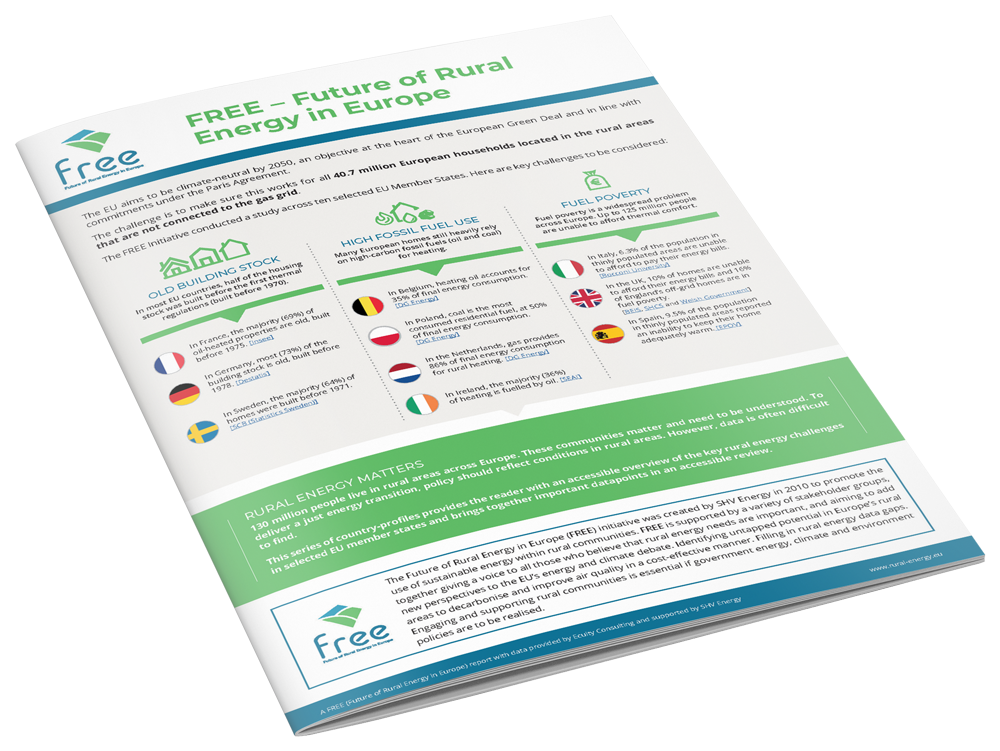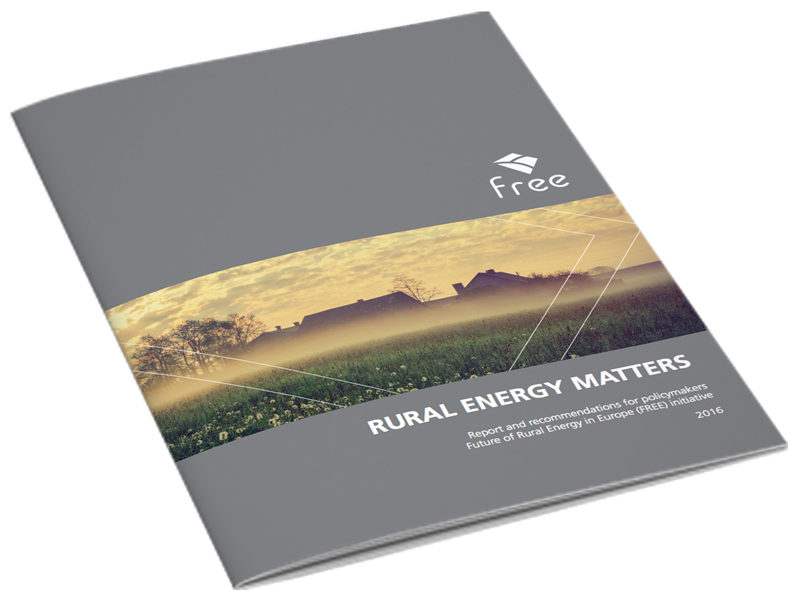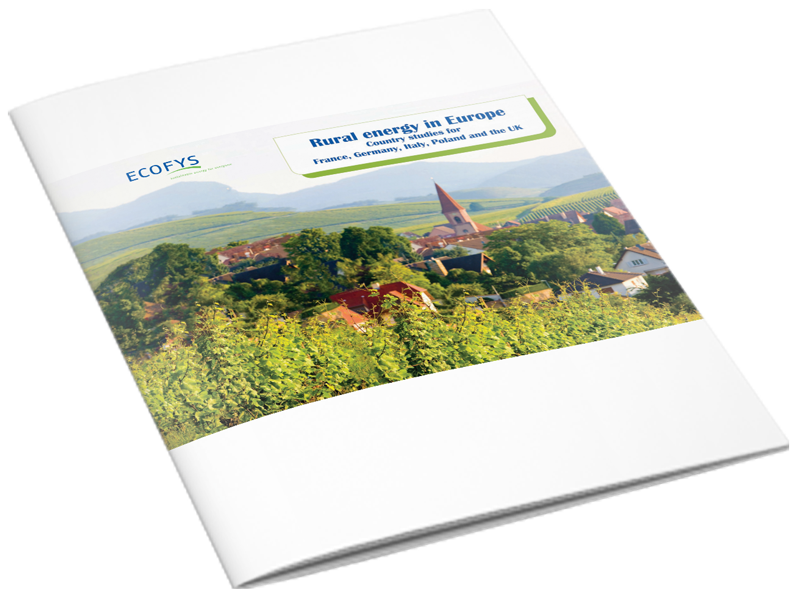Rural communities are disadvantaged
when it comes to energy choice
Publications
EU Rural Renovation Reality in support of the Renovation Wave
2021
Summary:
The European Commission has proposed a ‘Renovation Wave for Europe’ strategy, with the aim of doubling annual energy
renovation rates by 2030. Renovations are meant to enhance the quality of life for people living in and using the European
building stock, create green jobs and reduce Europe’s greenhouse gas emissions.
It is crucial that the energy needs of European rural businesses and communities and the state of the rural building
stock are considered in these initiatives. If given sufficient attention, improvements on this particular building stock would
facilitate the implementation of the European Green Deal and enable Europe to deliver a Just Transition to all its citizens.
The Impact of EU Energy Taxation Decisions
2021
Summary:
The revision of the Energy Taxation Directive (ETD) will impact millions of European citizens, including the 130 million that reside in rural areas.
It is crucial that the energy needs of European rural businesses and communities and the state of the rural building stock are
considered in this revision. If given sufficient attention, improvements on this particular building stock would facilitate the
implementation of the European Green Deal and enable Europe to deliver a Just Transition to all its citizens.
Key Challenges in European Rural Energy – Infographic
2020
Summary:
The EU aims to be climate-neutral by 2050, an objective at the heart of the European Green Deal and in line with commitments under the Paris Agreement. The challenge is to make sure this works for all 40.7 million European households located in the rural areas that are not connected to the gas grid. The FREE Initiative conducted a study across ten selected EU Member States. Here are key challenges to be considered.
Scenarios for decarbonising homes in Europe’s rural areas
2018
Summary:
Climate change is happening and action is necessary. At the Paris climate conference, governments agreed on a global action plan to put the world on track to avoid dangerous climate change by limiting global warming. Several routes are being explored to deliver the EU’s commitment to the Paris Agreement, and to the energy transformation overall. The main challenge is to make this transition work for everyone in Europe, including 40.7 million European households located in rural areas that are not connected to the gas grid. In the current debate on emissions reduction, rural areas and energy solutions for those areas are too often overlooked.
FREE report: ‘Why Rural Energy Matters’
2016
Summary:
There is little EU-wide data on rural energy use. This report attempts to construct an overview based on a collection of different sources, including European Commission statistics and industry reports. The study is developed by Ecuity Economics and published by the FREE initiative, aiming to provide up-to-date information and identify the key policy challenges that need to be addressed at EU level. It also presents recommendations to policymakers when developing energy legislation. The projections made herein should be seen as estimations and illustrative scenarios calling upon legislators, and influencers to make decisions that improve the current state of rural energy for the benefit of our environment, the economy and society as a whole.
White paper on Sustainable Rural Communities in Europe
2012
Summary:
Rural areas are faced with a series of energy challenges that are only partially addressed by the EU policy framework. Three interlinked issues have been recognised in some or all of the EU Member States:
- The low levels of energy efficiency in homes and commercial buildings,
- Climate change and air quality issues due to the fuels used, and
- The sometimes acute issues of energy affordability and availability in remote rural regions.
This White Paper outlines these policy challenges related to the development of clean energy in rural regions. It also includes a set of policy recommendations related to energy efficiency, air quality, fuel poverty and CO2 emissions in rural areas.
ECOFYS study: Rural Energy In Europe
2011
Summary:
A sustainable energy future for the European Union (EU) is important for all its citizens. Some areas within Europe are still deprived of access to a secure supply of clean and affordable energy. Gas and electricity networks are less well developed in rural areas and so the choice of fuels is more limited. Nonetheless, rural areas have a significant role to play in reaching the EU’s greenhouse gas emission reduction targets. The Ecofys report presents demand patterns for energy used by consumers in rural, intermediate, and urban areas. It also provides an insight into the way lower economic activity in rural areas plays a role in energy demand patterns, showing how differences in the fuels used in certain areas can lead to varying greenhouse gas emission levels. Differences in the fuel mix also have an economic effect because of different fuel prices.







